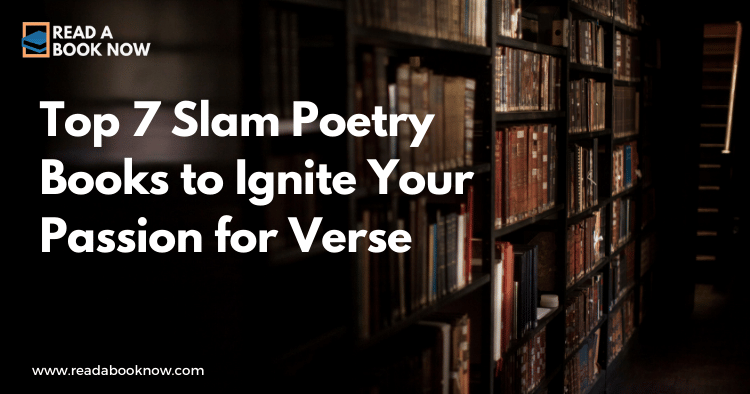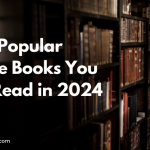Table of Contents
- Introduction to Slam Poetry
- Why Read Slam Poetry?
- Top 7 Slam Poetry Books
- 1. “The Spoken Word Revolution” by Mark Eleveld
- 2. “Don’t Call Us Dead” by Danez Smith
- 3. “The Art of Poetry Slam” by J. Ivy
- 4. “The Sun and Her Flowers” by Rupi Kaur
- 5. “The Complete Poems of Emily Dickinson” (yes, really!)
- 6. “When My Brother Was an Aztec” by Natalie Diaz
- 7. “The Truth About Forever” by Sarah Dessen
- Also Look For
- Frequently Asked Questions
- Conclusion
Introduction to Slam Poetry
Slam poetry is more than just a genre; it’s a powerful performance art that combines the art of spoken word with the energy of live performance. Originating in the 1980s, slam poetry has become a vibrant form of expression that allows poets to tackle personal and social issues with raw honesty and artistic flair. Whether you’re a poet yourself or simply someone who appreciates the craft, diving into the world of slam poetry can open up new avenues of thought and feeling.
So, if you’re ready to ignite your passion for verse, let’s explore some of the top slam poetry books that can inspire you.
Why Read Slam Poetry?
Slam poetry isn’t just about the words—it’s about the emotion, the rhythm, and the connection between the poet and the audience. Here are a few reasons why you should dive into slam poetry:
- Authenticity: Slam poetry often reflects real-life experiences, allowing readers to connect with the poet’s truth.
- Rhythmic Language: The cadence and performance aspect make it engaging and memorable.
- Social Commentary: Many slam poets address social issues, offering new perspectives that can challenge your worldview.
- Empowerment: Reading and writing slam poetry can be a form of expressing your own voice and experiences.
For further reading on impactful poetry, check out The Transformative Power of Reading Books.
Top 7 Slam Poetry Books
Here’s a curated list of seven slam poetry books that will not only entertain you but also inspire you to explore your poetic side.
1. “The Spoken Word Revolution” by Mark Eleveld
This anthology is a treasure trove of the best slam poetry from the 21st century. Featuring a diverse range of voices, “The Spoken Word Revolution” captures the essence of the movement. Each piece is a gateway into the poets’ lives, sharing personal stories that resonate on multiple levels.
Why It’s Great: The collection showcases emerging and established poets, making it a perfect introduction to the genre.
2. “Don’t Call Us Dead” by Danez Smith
Danez Smith’s work is a tour de force that explores themes of identity, race, and mortality with visceral language and poignant imagery. “Don’t Call Us Dead” has received numerous accolades, including the Forward Prize for Best Collection.
Why It’s Great: Smith’s unique voice and style challenge the norms of poetry, making this book a must-read for anyone looking to deepen their understanding of contemporary issues.
3. “The Art of Poetry Slam” by J. Ivy
J. Ivy, a renowned slam poet and Grammy Award winner, shares his insights into the art of slam poetry in this engaging guide. The book offers practical advice for aspiring poets and performance tips to help you hone your craft.
Why It’s Great: It’s an excellent resource for both beginners and seasoned poets looking to elevate their slam game.
4. “The Sun and Her Flowers” by Rupi Kaur
While Rupi Kaur often straddles the line between poetry and prose, her work has undeniably influenced the slam poetry scene. This book is a celebration of love, loss, and growth, presented in Kaur’s signature minimalist style.
Why It’s Great: Kaur’s relatable themes and accessible language make poetry feel approachable for everyone.
5. “The Complete Poems of Emily Dickinson” (yes, really!)
Emily Dickinson’s work predates the slam poetry movement, but her bold use of language and deeply personal themes resonate with slam poets today. Her poems often explore identity, nature, and death, making her a timeless figure in American literature.
Why It’s Great: Dickinson’s unconventional style and emotional depth can inspire modern slam poets to push the boundaries of form and content.
6. “When My Brother Was an Aztec” by Natalie Diaz
Natalie Diaz’s collection is a poignant exploration of identity and cultural heritage. Her powerful voice sheds light on the complexities of being Indigenous in America, making her work both personal and universally relatable.
Why It’s Great: Diaz’s lyrical style and emotional honesty make her a standout voice in contemporary poetry.
7. “The Truth About Forever” by Sarah Dessen
Though primarily known as a young adult novelist, Sarah Dessen’s writing often incorporates poetic elements that speak to the heart. “The Truth About Forever” delves into themes of love, loss, and self-discovery, making it a great read for aspiring slam poets.
Why It’s Great: Dessen’s narrative style engages young readers, encouraging them to explore their own voices through poetry.
Also Look For
In addition to these slam poetry books, consider exploring classic literature that has influenced contemporary poetry. You might find inspiration in works like:
- Top 10 Must-Read 19th Century Classics for Every Book Lover
- 10 Essential Modern American Classics You Must Read Now
- 10 Must-Read Feminist Classics That Changed Literature
These classic works can deepen your understanding of themes often explored in slam poetry.
Frequently Asked Questions
What is slam poetry?
Slam poetry is a competitive form of spoken word where poets perform original works in front of an audience. It emphasizes performance, emotional engagement, and often includes themes that resonate with contemporary social issues.
How can I get started with writing slam poetry?
Start by exploring your experiences and emotions. Write freely without self-judgment, focusing on rhythm and sound. After drafting, practice performing your work—how you deliver your poem can significantly impact its reception.
Are there any famous slam poetry competitions?
Yes! Competitions like the National Poetry Slam and the Individual World Poetry Slam are well-known platforms that showcase talented poets from all over the world.
Where can I find slam poetry events?
Check local community centers, universities, and poetry cafes. Websites like Poetry Slam, Inc. often list events happening in various cities.
Conclusion
Slam poetry is a dynamic and impactful art form that captivates audiences with its raw emotion and powerful storytelling. The seven books listed above are perfect starting points for anyone looking to dive deeper into the world of slam poetry. Whether you’re reading for inspiration or considering picking up the mic yourself, these works will ignite your passion for verse.
So grab a book, find a cozy spot, and let the words wash over you! Happy reading!




